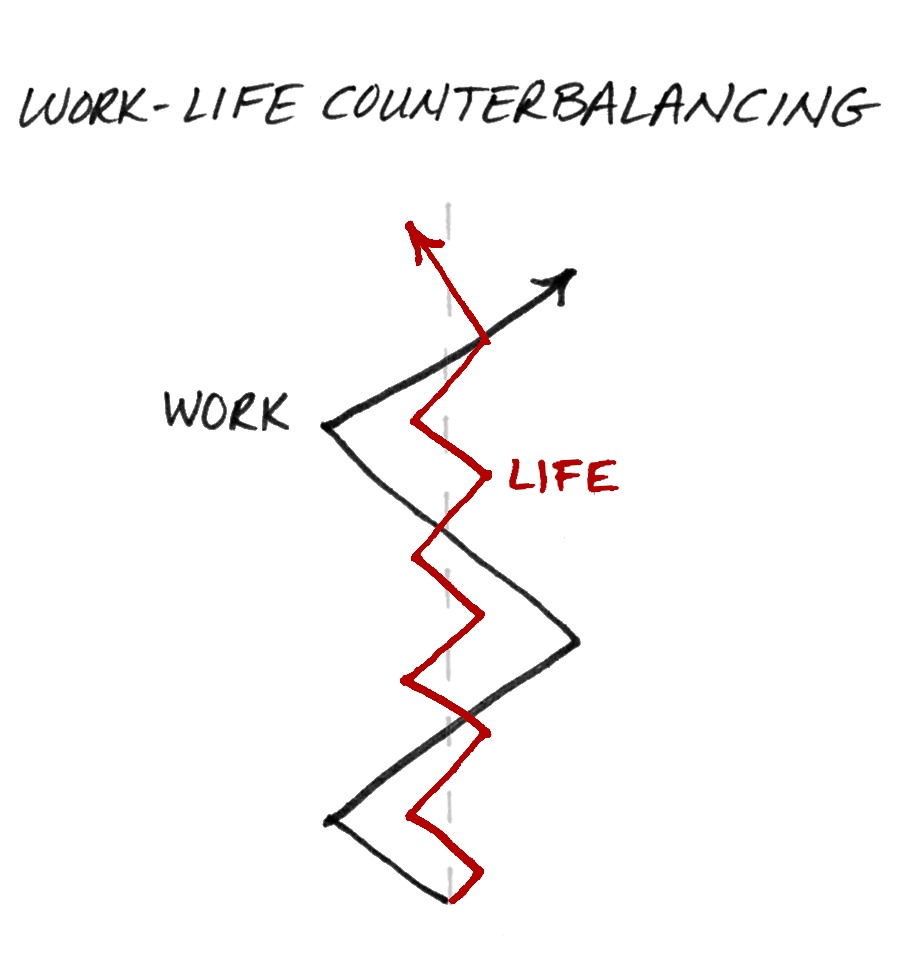
Trying to juggle work, family and a social life can feel like a never-ending struggle. Mostly because attempting to balance is never-ending. When we try to balance everything equally we can’t focus enough on any one ball that’s up in the air, leaving us stuck in the middle ground between life and work where nothing gets our full attention.
Getting things under control on one front often means letting things go in other areas of life. It’s what we call counterbalancing.
The ONE Thing that can help you counterbalance the lopsided areas of your life is having the right people in your corner. Whether they’re there to pick up the pieces you drop, give you a pat on the back when you’re struggling, or someone with a fresh perspective, there’s no doubt that when it comes to achieving your ONE Thing, no one succeeds alone.
While you don’t necessarily need a full-time personal assistant, there are three types of people that can make a big difference when you put your biggest priorities first:
A Supportive Partner
The importance of having a personal support system can’t be overstated. We’re all looking for a partner in life who we can share our dreams and goals with. Someone that is just as invested in our success as we are. A person that gives us a personal life worth living.
A supportive significant other is the one that helps hold down the fort when your work has to take the front seat. They are the ones that have to understand sometimes other things come first in the pursuit of your ONE Thing. They have to sacrifice just as much as you to make your biggest goals a reality.
They are also a partner in helping counterbalance all of the priorities within your personal life. Without a supportive significant other the tight counterbalancing that’s required to keep our personal lives on track wouldn’t be possible.
Professional athletes and their significant others are a great example of this. The professional pursuits of most athletes take them far away from home, sometimes for extended periods. One of the first people athletes thank in interviews and speeches is their spouse or significant other. They know without their support things at home would be left undone for too long.
An Experienced Mentor
The path to success is much easier when you have the guidance of someone that’s already traveled the road before. A good mentor is an invaluable asset that can lend you insight based on experience. With the help of their guidance, you can avoid mistakes and potholes that would otherwise slow down your progress.
A mentor will make the path easier to find and follow so you don’t have to put your personal life aside any longer than absolutely necessary. Mentors can also provide resources and connections that make everything else easier or unnecessary. Like a supportive significant other, a mentor is also invested in your success. They’ll understand that you have to go to extremes to reach extraordinary results, and can help you navigate situations while you’re on the edge.
The Professional Peer
Military personnel are known for having the backs of their fellow service members. They fully understand the importance of having someone they can trust at their side in the trenches. Someone they can share war stories with, so to speak.
A professional peer knows the struggles that you face and the challenge of overcoming them. It’s a reciprocal relationship you will need and appreciate when your work-life gets tough. They can help you by covering the small stuff while you give the lion’s share of your attention to your top priority at work. And you’ll find that you’ll pick up the slack for one another at work when one of you needs to focus on your top priority at home – your family.
Perhaps the biggest benefit a professional peer provides is friendship and camaraderie. Having true friends at work makes us happier. When we’re happier, we’re more productive. When we’re productive we can get more done in a shorter amount of time so it’s easier to put focus back on our personal life.
A supportive significant other, an experienced mentor and an understanding professional peer – these are three key connections to achieving counterbalance in your work and personal life. If you need help establishing and maintaining these important relationships, consider downloading The ONE Thing’s Relationship Guide and putting the concepts to work in your own life. By nurturing these relationships, you’ll find that managing all of life’s priorities will become possible rather than a pipe dream.
